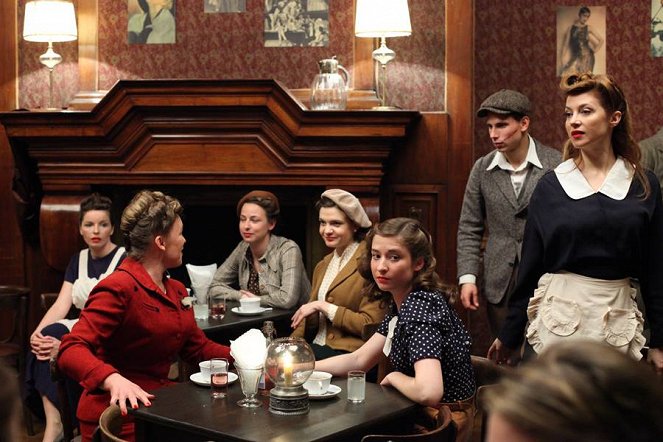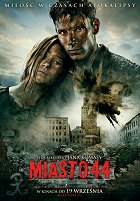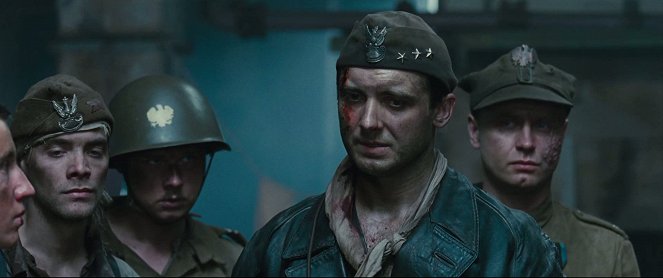Rendező:
Jan KomasaForgatókönyvíró:
Jan KomasaOperatőr:
Marian ProkopZeneszerző:
Antoni Komasa-LazarkiewiczSzereplők:
Józef Pawlowski, Zofia Wichlacz, Anna Próchniak, Antoni Królikowski, Maurycy Popiel, Filip Gurłacz, Michał Mikołajczak, Jasmina Polak (több)Tartalmak(1)
1944, occupied Warsaw. 18-year-old Stefan works to support his mother and his younger brother. The Home Army command decides to attack the weakened Germans withdrawing to the West. Stefan wants to fight the enemy with his friends and his loved one by his side. The first days of the uprising are joyous, the enemy retreats. But their happiness doesn't last long. The German army enters Warsaw, the uprising is doomed... (forgalmazó hivatalos szövege)
(több)Videók (2)
Recenziók (3)
This obviously ambitious project, drawing on a heroic milestone of Polish history, offers surprisingly well-made action sequences and the mad chaos of war horrors, mercilessly crushing members of the resistance movement and the civilian population. However, I have one minor problem with City 44 (the bland exposition) and two fairly significant ones. The first is that when the scene suddenly jumps into the flashy mode of Wanted by Timur Bekmambetov, everything around loses some urgency because we enter the harmless realm of fairy tales. The second problem is closely related to the first. The chosen form, which was meant to break the stereotypes of war films, and the content with a strange love triangle were tailored for a specific audience group, but they unnecessarily alienated the others. It’s like putting this next to Polanski's The Pianist and suddenly seeing the difference in the art of playing. It's a great pity because the theme is super strong. P.S.: The final shot of reborn Warsaw poignantly reminded us of the power of life and how healing the effects of time can be.
()
For all the crap we give the Poles, they have nothing to be ashamed of in this film. City 44 is one of the most realistic war films in a long time, truly authentic footage, often quite gritty (the scene where human entrails fall from the nuns from the sky after the explosion in the church is epic). The action is good, nicely shot, atmospheric at times (the scene in the sewer is hypnotically horrific), so the Poles obviously wanted to make the most of this one, there are a few Hollywood influenced scenes (various slow motion scenes, or a romantic scene with flexible bullets). Very effective.
()
The Poles have taken up a really rough topic, which I think is for them similarly important as Lidice for the Czechs. And the first half an hour looked really amazing. The characters were believable, the atmosphere was completely war-like and the action had class. This film did not lack almost anything. But then there was a romantic kiss in a slow-motion bullet-time scene, which looked as if it was cut out of a Max Payne game, which invented this slow-motion effect. Add the music, which does not belong to a story like this at all and the whole promising atmosphere was immediately lost in the void. Then the classic approach continued, and it again seemed pretty decent, but another slow-motion appeared just at the right time and now it was, for a change, accompanied by dubstep music. That was too much for me and I had troubles watching it till the end. The Second World War is not an action movie. The Second World War was a time where many people died and that is why movies from that era should be shot with respect to the people who have fallen in the war. But someone here did not understand that. And I have to say I feel really sorry for that. Under different circumstances, City 44 would aspire to become an important movie from the Second World War that would deserve far more than just two hours on the screen.
()
Galéria (92)
Photo © Ola Grochowska




Hirdetés